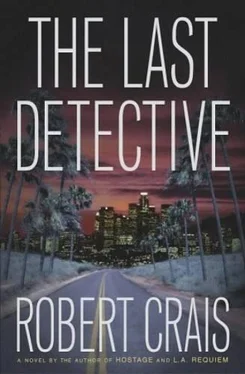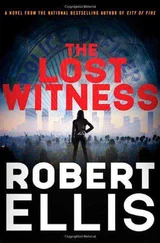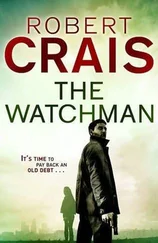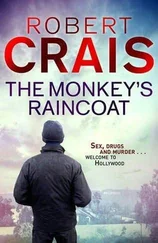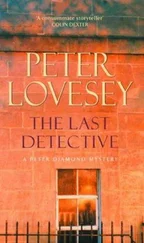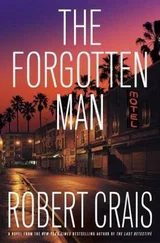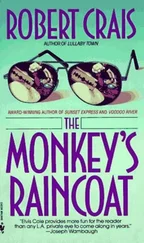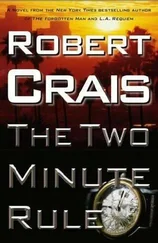"Joe?"
"Clear."
We went back to the entry to shut the door, then turned on more lights. The living room had almost no furniture, just a leather couch, a card table, and an enormous Sony television in the corner opposite the couch. The apartment was so spare that its impermanence was obvious, as if Schilling was prepared to walk away at a moment's notice and leave nothing behind. It was more like a camp than a home. A small cordless phone sat on the counter that divided the kitchen from the living room, but there was no answering machine. It was the first thing I looked for, thinking we might find a message.
I said, "His answering machine must be in back."
Pike moved back to the hall.
"Saw it when I cleared the bedroom. I'll take the bedroom, you check out here."
So many Corona and Orangina bottles cluttered the kitchen counters that one man couldn't have drunk them all. Dirty dishes were piled in the sink, and takeout food containers spilled out of a wastebasket. The food had been there so long it smelled sour. I emptied the wastebasket onto the floor and looked for the takeout receipts. The most recent date on the receipts was six days ago. The orders were large, way too much for a man living alone and easily enough for three.
I said, "They were here, Joe."
He called back.
"I know. Come see this."
I moved back to the bedroom.
Pike was kneeling by a rumpled futon, which was all that passed for furniture in the room. The closet door was open, revealing that the closet was virtually empty. A few shirts and some dirty underwear were piled on the floor. Like the rest of the apartment, Schilling's bedroom held a feeling of emptiness, as if it was more a hiding place than a home. A radio/alarm clock sat on the floor by the futon, along with a second cordless digital phone with a message machine built into its base.
"Did you hear something on his machine?"
"No messages. He has some mail here, but I called you for this."
Pike turned toward a row of snapshots that had been push-pinned to the wall above the futon. They were pictures of dead people. The dead were various races. Some wore the tattered remains of a uniform while others wore nothing at all. They had been shot or blown apart, mostly, though one was horribly burned. A red-haired man who grinned like an All-American boy gone mad posed with the bodies in several of the pictures. At his side in two of the pictures was a tall black man with marks on his face.
Pike tapped a picture.
"Ibo. The red hair would be Schilling. These pictures aren't just from Sierra Leone, either. Look at the vics. This could be Central America. This one could be in Bosnia."
One of the pictures showed the red-haired man holding a human arm by the pinkie as if it were a trophy bass. I felt sick to my stomach.
"They lost their minds."
Pike nodded.
"It's what Resnick said, they abandoned the rules. They became something else."
"I don't see anyone who looks like Fallon."
"Fallon was Delta. Even insane he would be too smart to let his picture be taken."
I turned away.
"Let's see his mail."
Pike had found a stack of mail held together by a rubber band. They were all addressed to Eric Shear at the mail drop and contained bank statements showing a checking account balance of $6123.18, canceled checks, and his phone bills for the past two months. Almost all of his calls were to area codes around Los Angeles, but six calls stood out from the others like a beacon. Three weeks ago, Eric Schilling had phoned an international number in San Miguel, El Salvador, six times over a four-day period.
I glanced at Pike.
"You think it's Fallon? Resnick thought South America."
"Dial it and see."
I studied Schilling's phone, then pressed the Redial button. A number rang, but a perky young woman's voice answered with the name of a local pizza restaurant. I hung up, then studied the phone some more. Digital phones will sometimes store outgoing and incoming calls, but Schilling's did not. I dialed the El Salvador number from Schilling's bill. The international connection made a faraway hiss as it bounced off the satellite, then I got a ring. The El Salvador number rang twice, then was answered by a recording.
"You know the drill. Talk to me."
I felt the same cold prickle I had felt that first day on the slope, but now anger boiled around it like mist. I hung up. It was the same man who had called me the night Ben was stolen and was recorded on Lucy's tape.
"It has to be him. I recognize his voice."
Pike's mouth twitched.
"Starkey's going to love this. She's going to bag a war criminal."
I studied the pictures again. I had never met Schilling or Fallon or anyone else shown in the pictures – these people had no history with me; they had no reason to be in Los Angeles or to know anything about me. Thousands of children came from families with more money than Richard, but they had kidnapped Ben. They had tried to make it seem as if their motive was vengeance against me, and now they were almost certainly holding up Richard for ransom money; yet he was denying it. All kidnappers tell their victims not to go to the police, and I could understand Richard was scared, but that was the only part that made sense. The pieces of the puzzle did not fit together, as if each piece was from a different puzzle and no matter how I tried to arrange them the picture they built made no sense.
We overturned the futon and looked through the sheets, but found nothing more. I went into the bathroom. Magazines were stacked beside the toilet. The wastebasket overflowed with wads of tissue, Q-tips, and cardboard toilet paper tubes, but several white pages jutted up through the trash. I upended the basket. A photocopy of my 201 Form fell to the floor.
I said, "Joe. Schilling has my file."
Pike stepped into the door behind me. I flipped through the files with a slow sense of numbness, then handed the pages to Joe.
"The only two people who had copies of this were Starkey and Myers. Myers had a judge in New Orleans get a copy of my file for Richard. No one else could have had it."
The pieces of the puzzle came together like leaves settling to the bottom of a pool. The picture they built was hazy, but began to take shape.
Pike stared at the pages.
"Myers had this?"
"Yeah. Myers and Starkey."
Pike cocked his head. His face grew dark.
"How would Myers know them?"
"Myers handles security for Richard's company. Resnick said that Schilling called him for security work. Maybe Myers hired him. If he knew Schilling, then Schilling could have brought in the others."
Pike glanced at the pages again, then shook his head, still trying to see it.
"But why would Myers give them your file?"
"Maybe it was Myers's idea to steal Ben."
Pike said, "Jesus."
"Myers had an open window into Richard's life. He knew about me and Lucy, he knew that Lucy and Ben were out here, and he knew that Richard was worried about them. Fallon and Schilling couldn't have known anything about that, but Myers would have known all of it. Richard probably did nothing but bitch about how much danger they were in because of me, so maybe Myers started thinking he could use Richard's paranoia to get some of Richard's money."
"Set up a kidnapping, then control the play from inside for the payoff."
"Yeah."
Pike shook his head.
"It's thin."
"How else could they get my file? Why target Ben as the victim and try to make me look like the reason it's happening?"
"You going to call Starkey?"
"What would I tell her and what could she do? Myers isn't going to admit it unless we have proof."
We went back to the bedroom and looked through Schilling's phone bills again to see if Schilling had phoned Louisiana, but his bills showed no calls outside the Los Angeles area except for the calls to El Salvador. We went through the entire apartment again. We searched every place we could think of to find something that would connect Schilling to Myers or Myers to Schilling until we ran out of places to search, and still we had nothing. Then I thought of another place we could look.
Читать дальше
